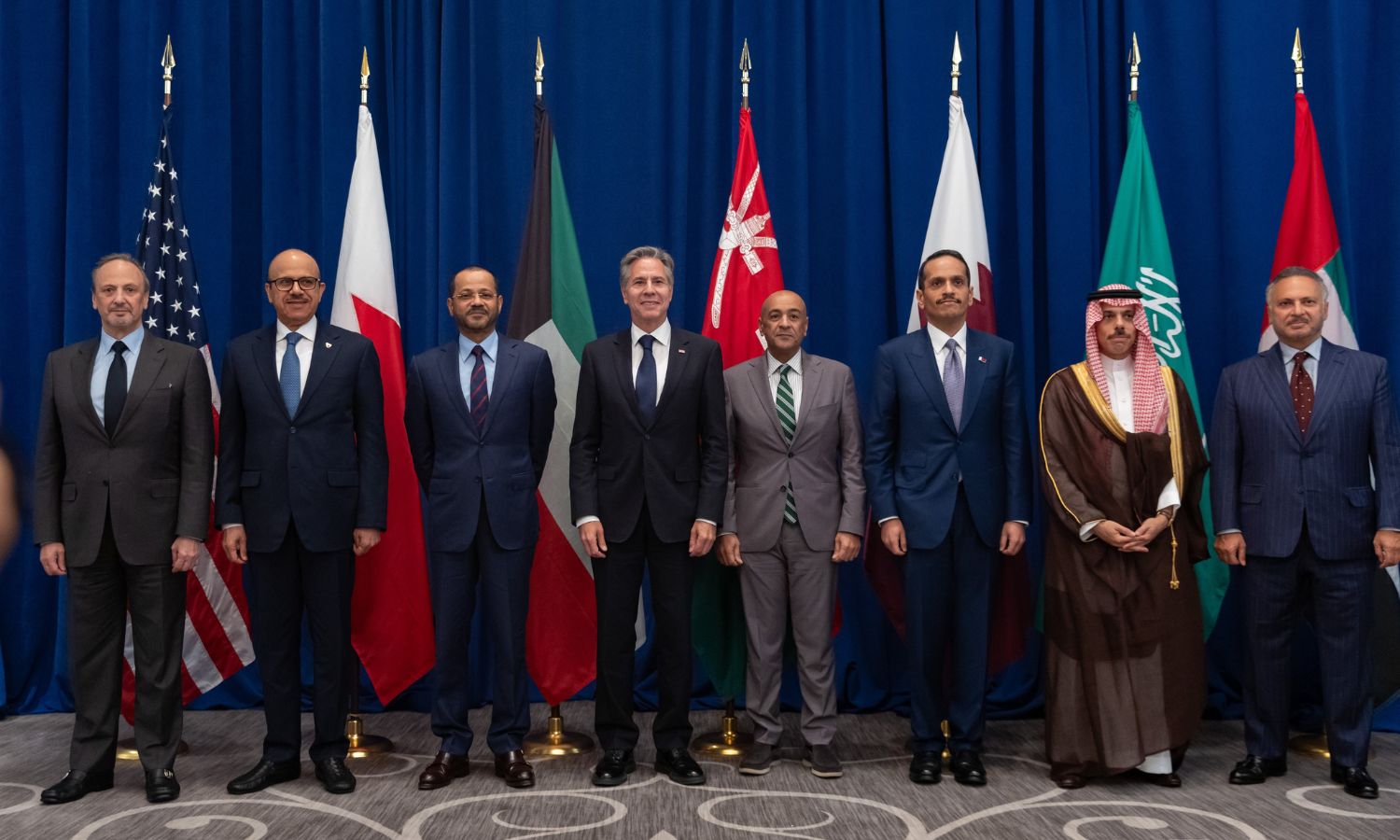U.S. Secretary of State Antony Blinken emphasized the importance of maintaining pressure on the Assad regime in Syria to make substantial advancements in resolving the ongoing conflict. During a meeting with foreign ministers from the Gulf Cooperation Council (GCC) on Monday, Blinken articulated, “We firmly believe in the need to continue exerting pressure on the Assad regime in Syria, with the goal of achieving concrete and enduring progress in the Syrian conflict, and addressing the urgent humanitarian needs of the Syrian people.”
Furthermore, Blinken underscored that both the United States and Gulf countries are collaboratively addressing the primary regional security concern: Iran. They are actively engaged in efforts to counter Tehran’s aggressive actions and destabilizing activities.
Saudi Foreign Minister Discusses Developments in Syrian Issue with Pedersen
The US statement aligns with recent indications from Gulf and Jordanian authorities, which underscore a growing rift between Arab nations and the Syrian regime. This discord comes several months after the introduction of the “Jordanian initiative” aimed at finding a resolution to the Syrian crisis.
On September 8th, former Jordanian Minister of Information, Samih al-Maaytah, accused the Syrian regime of direct involvement in drug smuggling operations from Syria to Jordan. Maaytah stated in an interview with the Qatari channel al-Jazeera, “The Syrian regime employs a strategy of delay, and Assad acknowledged during an official meeting that corruption and bribery persist and are beyond our control, but this assertion is far from accurate.”
He added, “A regime that claims victory in the conflict, having vanquished the opposition and asserting control, cannot feasibly allow such activities to persist. It defies logic.” Maaytah contended that the drug trade, particularly involving ‘Captagon,’ is a lucrative enterprise for the Syrian state, the Assad regime’s inner circle, various militias, and segments within the military apparatus.
On September 16, journalist Makram Tarawneh published an article in the Jordanian newspaper “al-Ghad,” titled “Damascus’ Stance Toward Jordan,” highlighting Syria’s persistence in conveying negative messages towards Jordan. These messages are conveyed under the guise of cooperation on security matters related to their shared border, specifically regarding the issue of narcotics trafficking.
Please note that the information provided is accurate as of my last knowledge update in September 2021, and there may have been developments in the situation since that time.
Saudi Arabia: The known source
In his remarks, Salem al-Yami, a former advisor in the Saudi Ministry of Foreign Affairs, spoke with “al-Jazeera” and emphasized that the origins of the drugs impacting Jordan and the Gulf region are well-known. He revealed that discussions have taken place with the responsible parties, and there are commitments, as indicated in reports, that within a month of reconciliation or a return to the Arab League, comprehensive lists detailing the producers, factories, exporters, and methods of drug export will be provided.
Yami also commented on President Assad’s recent statements during his interview with Sky News Arabia. In this interview, Assad attributed drug smuggling to countries that he claimed had introduced terrorism to Syria. Yami interpreted Assad’s remarks as a fresh contradiction from the official Syrian perspective, given their prior commitments to curbing smuggling. He suggested that this situation underscores the notion that weak sovereignty equates to weak control.
This article was translated and edited by The Syrian Observer. The Syrian Observer has not verified the content of this story. Responsibility for the information and views set out in this article lies entirely with the author.


